“You’re Profiting From Palestinian Deaths”: Student Protesters Confront Brown University’s President
Days after the attempted murder of three Palestinian students in Vermont, Brown University asked the city to drop the charges against members of Jews for Ceasefire Now, but remained silent on divestment.
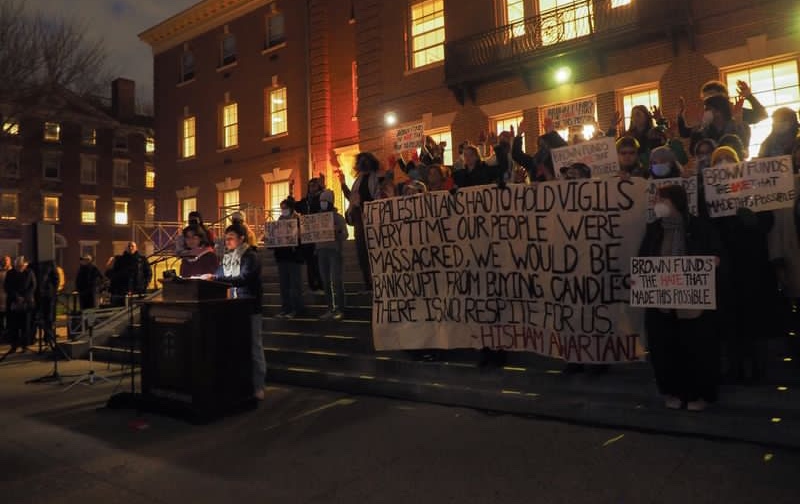
Protesters confronting Brown University President Christina Paxson at a vigil for junior Hisham Awartani.
(Anonymous student)After three Palestinian students, including Brown University junior Hisham Awartani, were shot in Vermont over the weekend, the Brown administration announced Monday that trespass charges against 20 pro-Palestine student protesters were being dropped.
But it did not comment on the central demand of the protesters from a group called Jews for Ceasefire Now who staged a sit-in in University Hall on November 8 calling for the university to divest its endowment from companies that supply military equipment and weapons to Israel. Subsequently, at a vigil for Awartani attended by hundreds of students on Monday evening, Brown President Christina Paxson was shouted off the stage with calls of “Brown divest!” and “Shame!”
Awartani, and two other Palestinian students—Tahseen Ali Ahmad of Trinity College and Kinnan Abdalhamid of Haverford College—were shot Saturday in Burlington, Vt,. in what was likely a hate crime. Visiting Awartani’s relatives during the Thanksgiving break, the three students were out for a walk, wearing keffiyehs and speaking a mixture of English and Arabic, when a man approached and shot them without speaking. All three are in stable condition but Rich Price, Awartani’s uncle, said at a press briefing Monday that Awartani “received a spinal injury and faces a long recovery.” The students’ families have organized a fundraiser for their medical expenses, and the suspect, Jason Eaton, has been arrested and charged with attempted second-degree murder.
“Palestinian students and our co-strugglers have felt unsafe and scared and uncertain, and rising, racist, violent climate in the US for several weeks now,” Sherena Razek, president of Brown’s Graduate Labor Organization (GLO) and a member of GLO’s Palestine Solidarity Caucus, told The Nation. The shooting “was shocking, but also not surprising at the same time.”
Two days after the attack, Brown announced that the Providence city solicitor, upon the university’s request, had agreed to drop the charges against the Jewish student protesters, who were set to be arraigned on Tuesday. During the sit-in, the university began having students arrested just 45 minutes after the building’s operating hours had ended. Despite significant pressure from the community—including a letter signed by hundreds of faculty calling for the university to drop the charges—the administration allowed the charging process to proceed until Monday’s announcement.
The protesters will still enter into the university’s disciplinary proceedings, however, which neither the administration nor members of Jews for Ceasefire Now could comment on.
“The vicious attack against one of our students over the weekend in Vermont is reverberating across campus,” said the university in a statement provided to The Nation. “There is so much confusion, fear and anger being felt right now that we feel this is a time to bring our community together and try to set aside issues that are exacerbating tensions and division on our campus.”
But at a vigil for Awartani, less than an hour after the university’s announcement, campus tensions were still on full display. As Paxson spoke from the podium, she condemned anti-Arab and anti-Palestinian violence and the crowd remained quiet until she said, “Sadly we can’t control what happens around the world and across the country. We’re powerless to do everything we’d like to do. But there’s so much that we are doing—.” It was then that shouts began to rain over Paxson: “Divest!,” “Divest from genocide!,” “Shame on you Paxson!,” “You’re profiting from Palestinian deaths!,” “If he was in Palestine, you wouldn’t care!”
Paxson responded: “We are at a vigil for your friend, our friend!” she said over the shouts. “I was going to say that at a faculty meeting last month, I said that every student, faculty, and staff member should be able to proudly don a keffiyeh on this campus. And that Brown is a strong and loving campus.” But the cacophony of shouting only grew stronger and soon it fused into a vehement chant: “Brown divest!”
Paxson then left the stage and a protester took her place. “We have pleaded and begged! Palestinian students have told you that not divesting made them unsafe. And what are you doing? Not divesting! Hisham was shot because of your complicity!”
Paxson then returned to the podium. “Can we continue a vigil for Hisham, please, now,” she said sternly into the microphone. “I’m hearing you and I would like to continue with our peaceful vigil.” But as calls of “Shame!” continued, she left the stage and remained standing on the side.
“The disruption that happened was spontaneous,” Razek told The Nation after the vigil. “And actually, a silent disruption was planned. But these comments of powerlessness, and the blatant inherent lie of that statement from a person in a position of immense power was so outrageous that people spontaneously rose to action and felt it necessary to voice our demands.”
After Paxson left the podium, professor of Palestinian Studies Beshara Doumani took the microphone. “That was not what I was expecting, but I suppose it’s part of the proud Brown tradition of making your voices heard,” he said. “I do think that President Paxson came out here with good will to say what she wanted to say, but I also know that members of this community have been making their voices heard for many, many years but it has not led to the results they need and that I think this country needs.”
Popular
“swipe left below to view more authors”Swipe →In his speech, Doumani explicitly addressed the possibility of divestment. “The university is absolutely committed to doing everything they can for Hisham and to continue the struggle, which he and the students before him started, which is, as you say, to divest. As you know, this is a long-term struggle. Divestment is a means towards something, it is not an end itself.”
A 2020 report from the University’s Advisory Committee on Corporate Responsibility in Investment Policies recommended divestment from companies that “facilitate human rights violations in Palestine,” a policy that 69 percent of voting undergraduate students supported in a 2019 referendum. But in a 2021 letter to the committee, Paxson wrote, “Brown’s endowment should not be used as an instrument to take sides on contested geopolitical issues over which thoughtful and intelligent members of the Brown community vehemently disagree. Brown is deeply committed to academic freedom, and we will continue to uphold the right of members of the Brown community to express their views on the Israeli-Palestinian conflict. However, we will not use the endowment to take an institutional position on this issue.”
Aboud Ashhab, a Palestinian student at Brown who went to high school with Awartani in the West Bank, also spoke. He said that Awartani was previously struck by a rubber bullet fired by the Israeli occupation at a protest in the West Bank in 2021, and he condemned the university for its failure to divest. “President Paxson said our community should come together to condemn anti-Arab and anti-Palestinian discrimination, acts of violence and hate and express care and empathy for one another,” he said. “We insist in the most urgent possible terms that the way for Brown to condemn anti-Arab and anti-Palestinian violence is to stop profiting from the violence against Palestinians.”
“You cannot condemn the violence waged against us abroad after staying quiet on our oppression in our homeland,” Ashhab said. “One of our classmates has been shot. What will it take for Brown to respond?”
At the vigil, Doumani shared a text message he received from Awartani, connecting the attack to the global oppression of Palestinians: “Had I been shot in the West Bank, where I grew up, the medical services which saved my life here would likely have been by the Israeli army. The soldier who would’ve shot me would go home and never be convicted. I understand the pain is so much more real and immediate because many of you know me. But any attack like this is horrific, be it here or in Palestine. This is why when you say your wishes and light your candles today, your mind should not just be on me as an individual but rather as a proud member of a people being oppressed.”
Beside the podium, someone placed a sign painted with additional words from Awartani, these from a previous vigil on campus in October: “If Palestinians had to hold vigils every time our people were massacred, we would be bankrupt from buying candles. There’s no respite for us.”
Afterward, Paxson walked into University Hall, prompting the crowd to gather outside and continue their chanting: “CPax, CPax you can’t hide! You’re supporting genocide!”
Professor of Holocaust and genocide studies Omer Bartov, who told The Nation that targeted political pressure from the United States on Israel was more effective than the Boycott, Divestment, and Sanctions movement that seeks to end international financial support for Israel, was more understanding of the university’s position. “I think it’s great that students have political views and express them,” he said. “But to ask the university to have the correct political opinion is impossible. And that’s not the role of the university. And there may be people among the students, and among the faculty and among the administration of different views.”
For members of Jews for Ceasefire Now, the news that the university was having their charges dropped didn’t reduce their frustration. “We don’t really trust the university to have their priority be keeping us safe,” Rita Feder, a member of Jews for Ceasefire Now, told The Nation after the vigil. “If they really cared about keeping their students safe, they wouldn’t have publicly paraded arrested students in the first place.… If they really cared about their students, [they would] divest from weapon manufacturing companies that are continuing to profit off of the ongoing unbelievably horrifying massacre in Gaza.”
Edie Fine, one of the 20 students arrested in the sit-in, said Paxson’s speech at the vigil appears inauthentic without a commitment to divestment. “All of this feels absolutely empty, and in fact actively harmful and pacifying, when the truth is that she is refusing to do the single thing that Palestinian students are asking of her to protect them,” they said.
More from The Nation
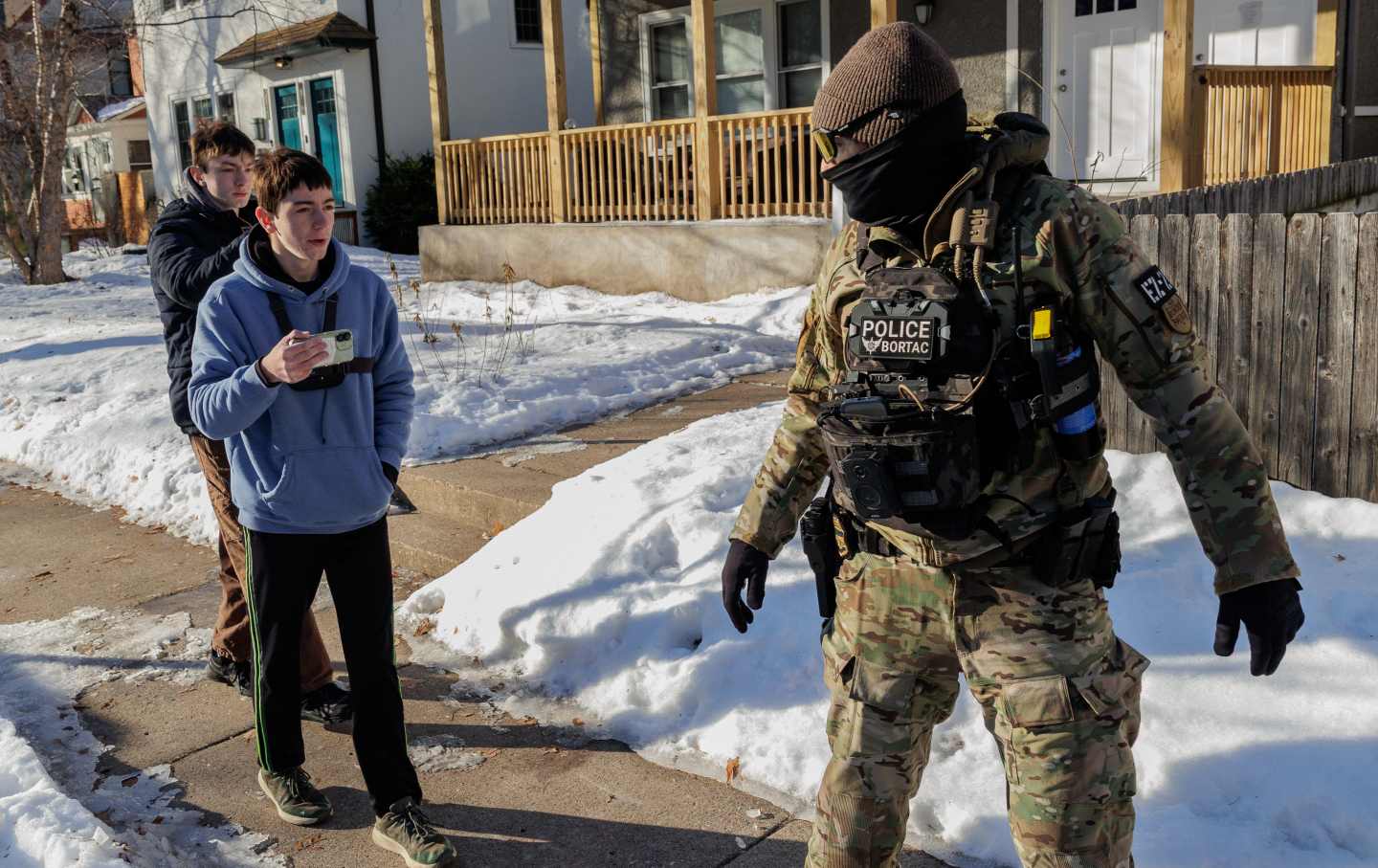
The People vs. ICE The People vs. ICE
Across the country, neighbors are working together to protect one another from Trump’s immigration crackdowns.
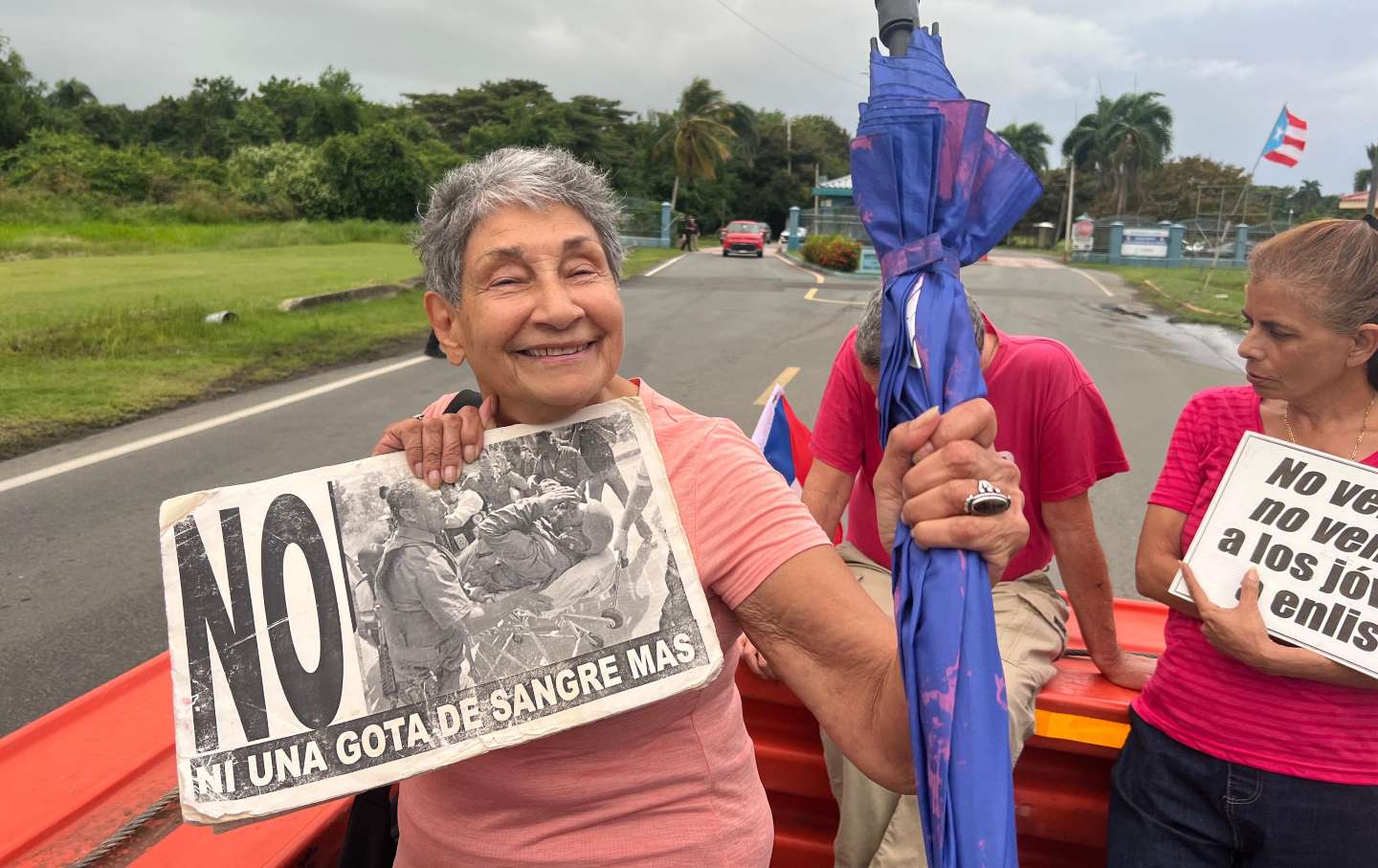
Puerto Rico’s Mothers Against War Turn to Revolutionary Love Puerto Rico’s Mothers Against War Turn to Revolutionary Love
Formed to oppose the Iraq War, Madres Contra La Guerra have now spent decades trying to end Puerto Rico’s role at the center of the US war machine in Latin America.
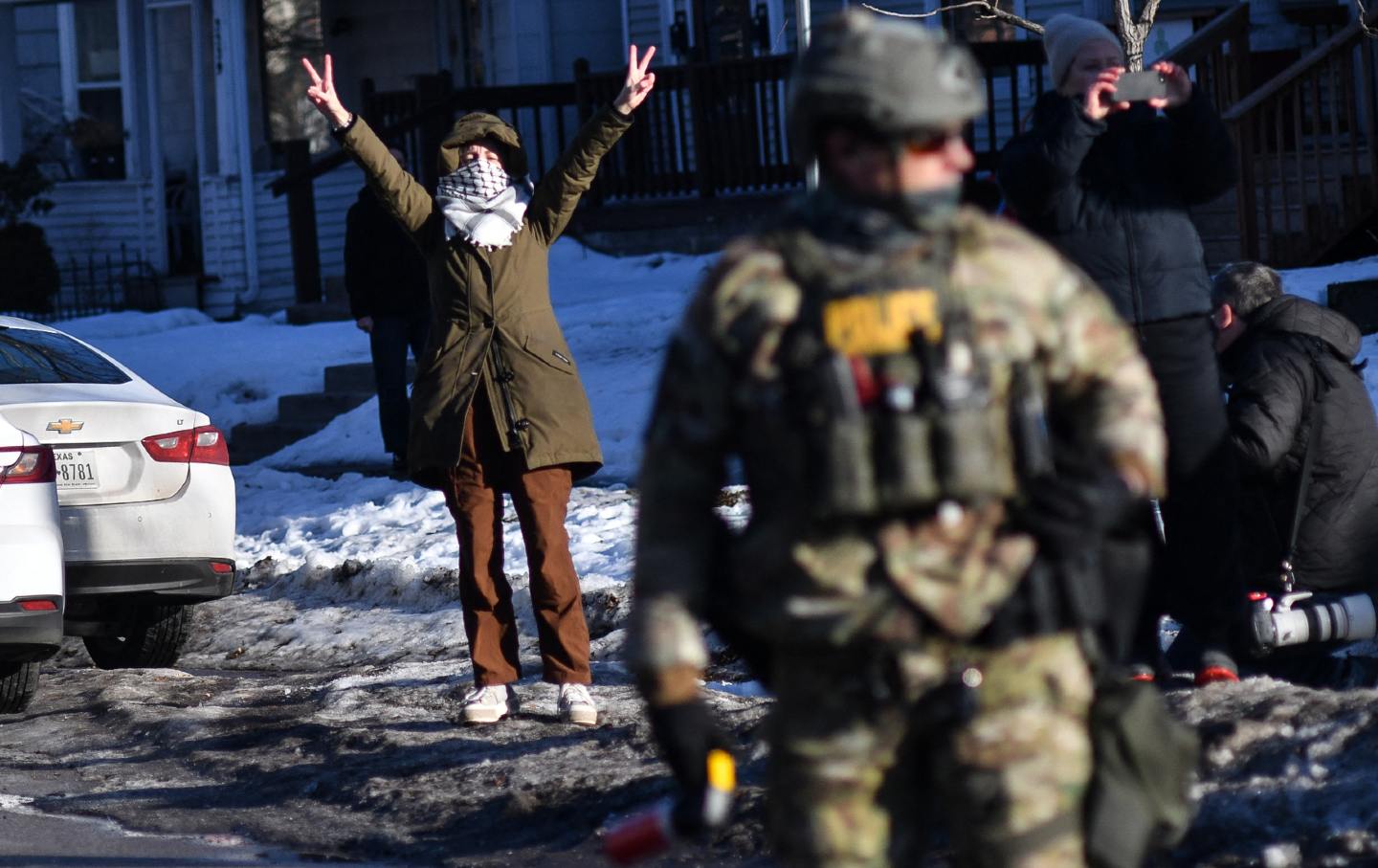
A Minneapolis Teacher Wants the Whole Country in the Streets A Minneapolis Teacher Wants the Whole Country in the Streets
Dan Troccoli, a public middle school teacher, says everyone should start “emulating” Minneapolis’s resistance to ICE and the Trump regime.

Let’s Make Renee Good the Last Person That ICE Kills Let’s Make Renee Good the Last Person That ICE Kills
We can turn the tide against Trump—but only with mass action and courageous leadership.
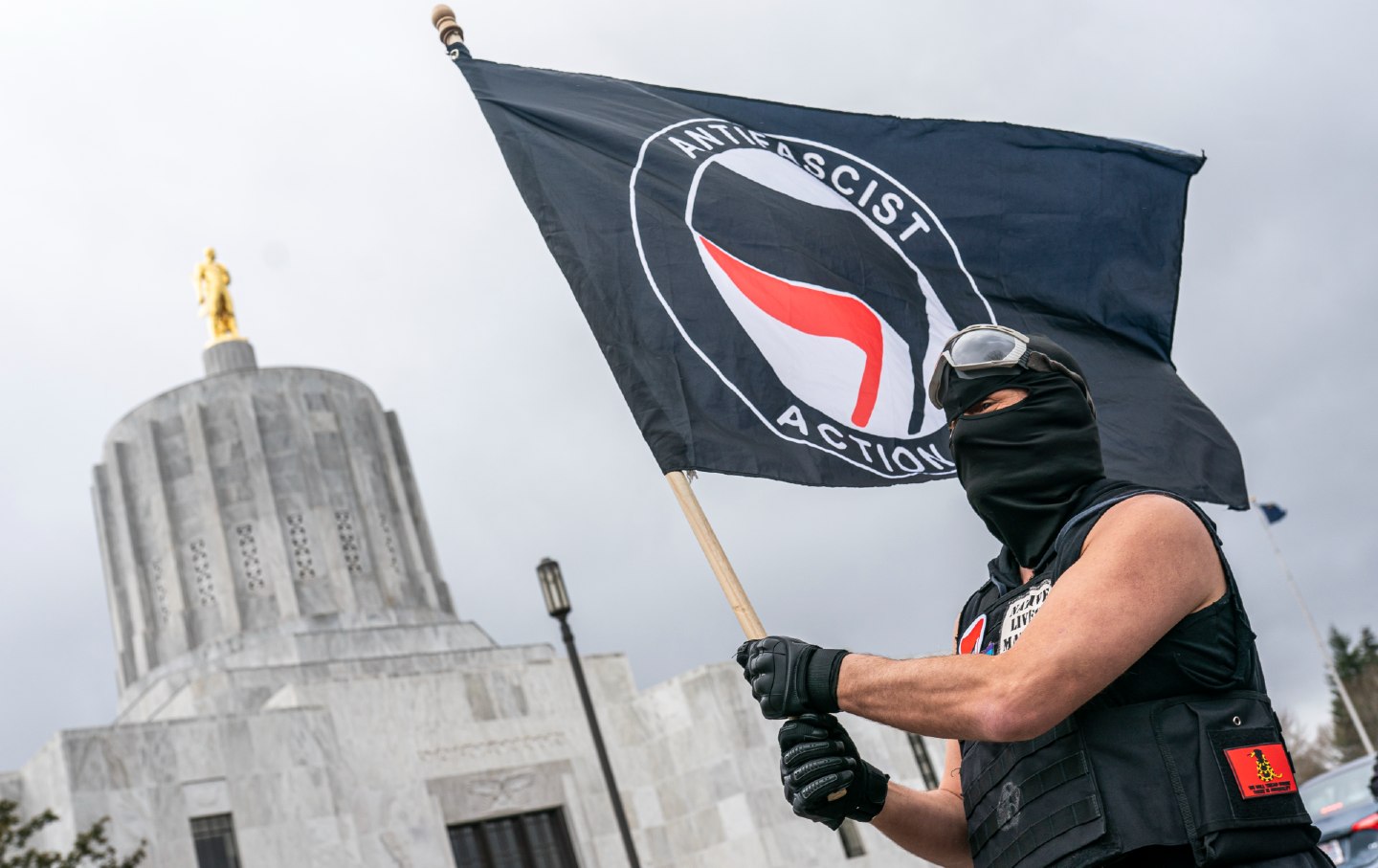
Liberals Think Antifa Isn’t Real. But It Is—and It Knows How to Win. Liberals Think Antifa Isn’t Real. But It Is—and It Knows How to Win.
To protect us all from the violence of the Trump administration, we must defend antifa.
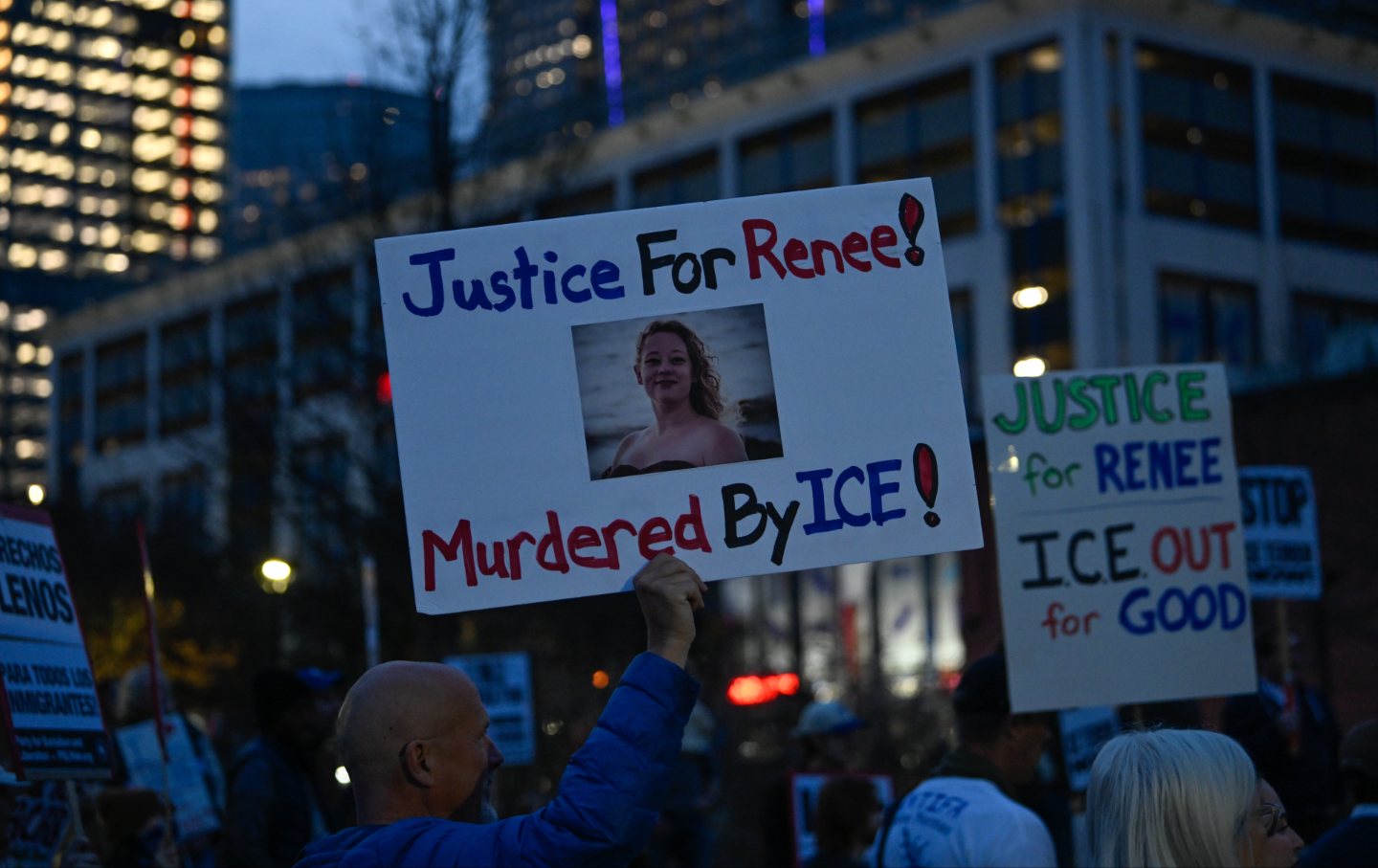
Want to Stop ICE? Go After Its Corporate Collaborators. Want to Stop ICE? Go After Its Corporate Collaborators.
ICE can’t function without help from the private sector. So we should force the private sector to stop helping.


